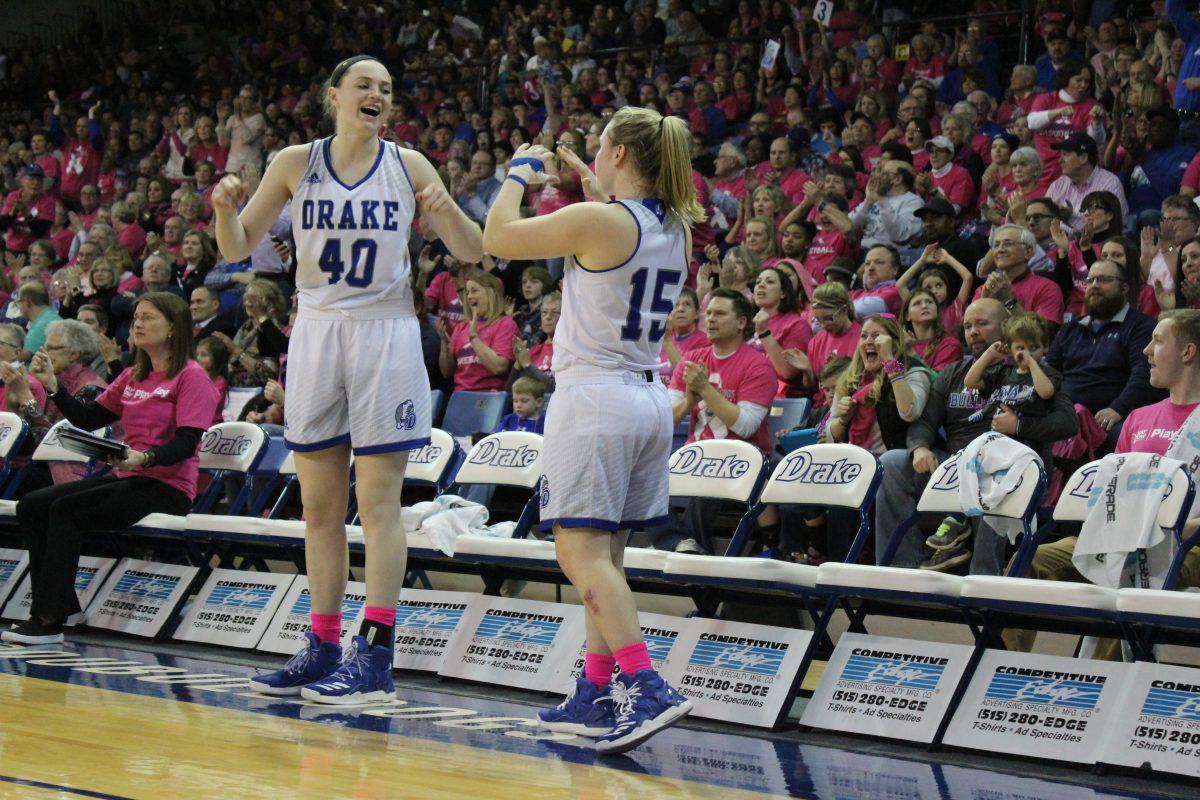Grenfell is a junior public relations and management double major and can be reached at carly.grenfell@drake.edu.
“There is no ‘I’ in team, but there is a ‘me.’” This saying has never been one that sits well with me. But the more I thought about it, the more I started to like it. Now whether or not the person who said it was completely and utterly conceited is one question that will remain unanswered. I am going to assume the best this time. I plan on dissecting this quote from a much different angle — one that emboldens team and less of me. Probably seems a bit contradicting, right? Just wait. I am beyond ready to enlighten you.
Most people think of a team as a close-knit group of people with common goals. It isn’t unheard of that they view themselves as “family” or “best friends.” I’m not here to challenge those notions. But, wow, there is so much more to it than that. A team can be one in the workplace or the athletic setting, but they are more or less the same in my book. This year, we have talked a ton about being real with each other. This goes hand in hand with accountability and not being afraid to call a teammate out when it’s necessary. Definitely easier said than done. I’m going into my third season, and I have hardly scratched the surface of being real. It is something that doesn’t happen overnight. Being uncomfortable is not easy. And that is essentially what being real with someone requires.
A team becomes a family by understanding each other inside and out. This includes knowing each other’s strengths and weaknesses (revealed by being real). What makes you tick? What makes your teammate tick? Does Player A need constant encouragement? Does Player B need someone in her face at times? Where does Player C like her passes when getting ready to shoot? These are the types of things that initiate success for a team. Reflect on how well you know your family. Can you say you know your teammates on the same level? Relationships surely take time.
So where does the “me” part come in? The only reason “me” is important is for the value it brings to “team.” That begins with knowing and carrying out your role. Every rational being knows what he or she can and cannot bring to the table. For example, I know I’m not a 6’4” monster who can throw down inside. I’m a shooter, and I know I need to knock down shots to contribute to the team’s success. Simple as that — ALL the parts must work together in order for the team to go. And that begins with “me.” One player’s strengths make up for another player’s weaknesses.
Hopefully, you have caught on to the overriding message. There are many parts of a team that must work together in order to attain success. Obviously there is no one way to go about it, but here is an alternative definition of the initial quote, “there is no ‘I’ in team, but there is a ‘me.’”
The “me” cannot solely run a team, but the “team” can surely run with a combination of “me’s.”


